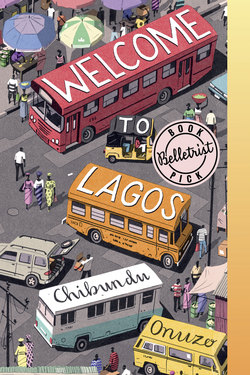Читать книгу Welcome to Lagos - Chibundu Onuzo - Страница 17
На сайте Литреса книга снята с продажи.
Оглавление10
THE PAPER WAS DYING. Advert subscriptions had dwindled since the Journal’s honest coverage of the last election. There had been eyewitness reports of ballot boxes stuffed like birds, bursting with voters that did not exist. Long after civil society voices had fallen silent and President Hassan had been sworn in, Ahmed’s editorials continued to call for a rerun.
Eventually they had moved on but the damage was done. No one would advertise in a paper that was rumored to be unpopular with the First Family. In a way it was flattering. It meant the politicians in Abuja were reading. president calls for national day of prayer: this was the headline his editorial team believed would turn their fortunes.
“But it’s not news,” Ahmed had said in that morning’s meeting.
“We need advertising.”
“It’s not news,” he said again.
“It’s midweek paper. There’s no news midweek. Just let it pass. His boys will see it. They’ll start buying our pages. We need a positive story about the president.”
“And when you find one, we’ll publish it.”
Prayer was all the recommendation he heard for Nigeria these days. For every crisis, eyes were shut, knees engaged, heads pointed to Mecca, and backs turned to the matter at hand. He did not remember the country being so religious in his childhood. Faith used to be a part of the landscape, glimpsed in wax rosaries and white celestial robes, in wooden prayer beads and the vivid scarves his mother wore when she went to the mosque. None of this obtrusive proselytizing, loudspeakers on every corner, blasting calls to prayer and songs of praise.
It showed a certain tolerance that his street in Surulere should boast both a church and a mosque, tolerance from his neighbors, with whom he should have long since banded to demolish both buildings. He had chosen Surulere because it stood in opposition to everything he had known of Lagos as a child. He had grown up in Ikoyi, an island physically and metaphorically cut off from the city, a quivering bubble of privilege that he had burst out of once he returned to Nigeria.
Surulere wasn’t quite a ghetto. His street was affluent, with high walls and rosettes of barbed wire, but close by lay a grittier Lagos that on occasion spilled into their world in the form of armed robberies. The few times his mother had visited, she offered the boys’ quarters of their house, done up and ready for him to move in.
“You’d never even have to see us. You’d have your own entrance.”
“But what of my own pride?”
There was always traffic on the way home, as constant as the sunset, a swarm of engines throbbing heat and irritation, the strain of clutch control, poised on the biting point, starting and stopping until his shoulder ached from changing gears. He refused to get a driver, refused at his age to become an oga giving orders to a man who would glance in the rearview mirror when he thought Ahmed was not looking, eyes filled with hate.
Once he got home, he ate his dinner over the sink, his fork clinking against the ceramic, the lonely chime of bachelorhood. Then he began an editorial, congratulating the president on his new role as spiritual adviser to the nation. He wrote in his study, a converted bedroom with wood carvings on the walls and an adirẹ cover for his desk. Only a select few were allowed to sing through his complicated sound system. Fẹla he played when the comfortable, cud-chewing life in England began to look attractive. Makeba’s voice was a running stream he slipped into after meetings with the paper’s accountant. And Ndour was his personal gateway into the spirit world, into a trance where ideas moved easily into sentences. There were books everywhere, spines facing outwards, Fanon and Tolstoy, Achebe and Maupassant, piled eclectically on top of each other. It was the study of a modern Pan-Africanist, a room that Nkrumah would have relaxed in, he liked to believe.
The rest of the flat was spacious and bare. It would have been minimalist in England, a glass coffee table, a white sofa, a pine chair, and a long flat-screen TV. In Lagos, the room looked like a cell. A cleaner came once a week, sweeping, mopping, and polishing, down to the security bars on the windows. Only the study was out of bounds. He sometimes wished for a woman to interrupt his work and drag him to bed.
He had found many women to sleep with in Lagos but none to split his life down the middle for. He ruled out the mercenaries fast, women who approached men like prospectors, striking for rent money, fuel money, weavon money. As for those left, who found his work meaningful and shared his love of black-and-white films, would these slim compatibilities last them forty years? Perhaps his mother was right. He was not looking hard enough. He was too obsessed with his paper. And to what end?
He would not bring down the government with the Nigerian Journal. Those days were gone, when newspapermen were feared and hounded and despised and worshipped for their recklessness. When a headline could force a paper underground and audiences risked much to read an editorial. He could no longer be a scourge to the Nigerian establishment but he could be a thorn, a brittle thorn in its buttock. The article on the president was ready. It would run on the weekend. The paper would lose more subscribers. He would run the Journal into the ground before he let it become popular reading in government circles.
